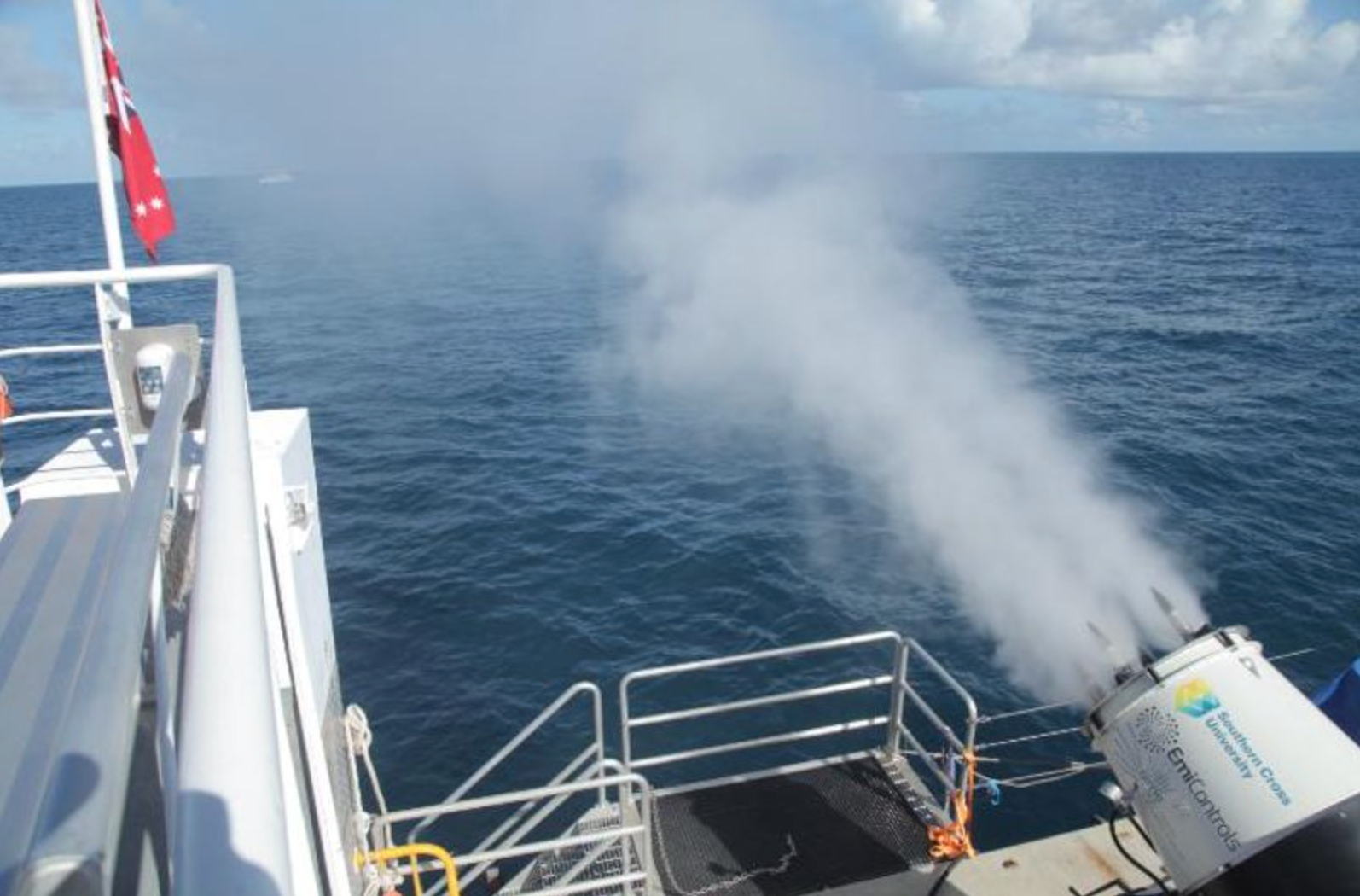
News
Featured

Fast Company Announces the World’s Most Innovative Companies of 2025
As the world shifts and industries transform, the World’s Most Innovative Companies aren't just keeping up. They're setting the pace.
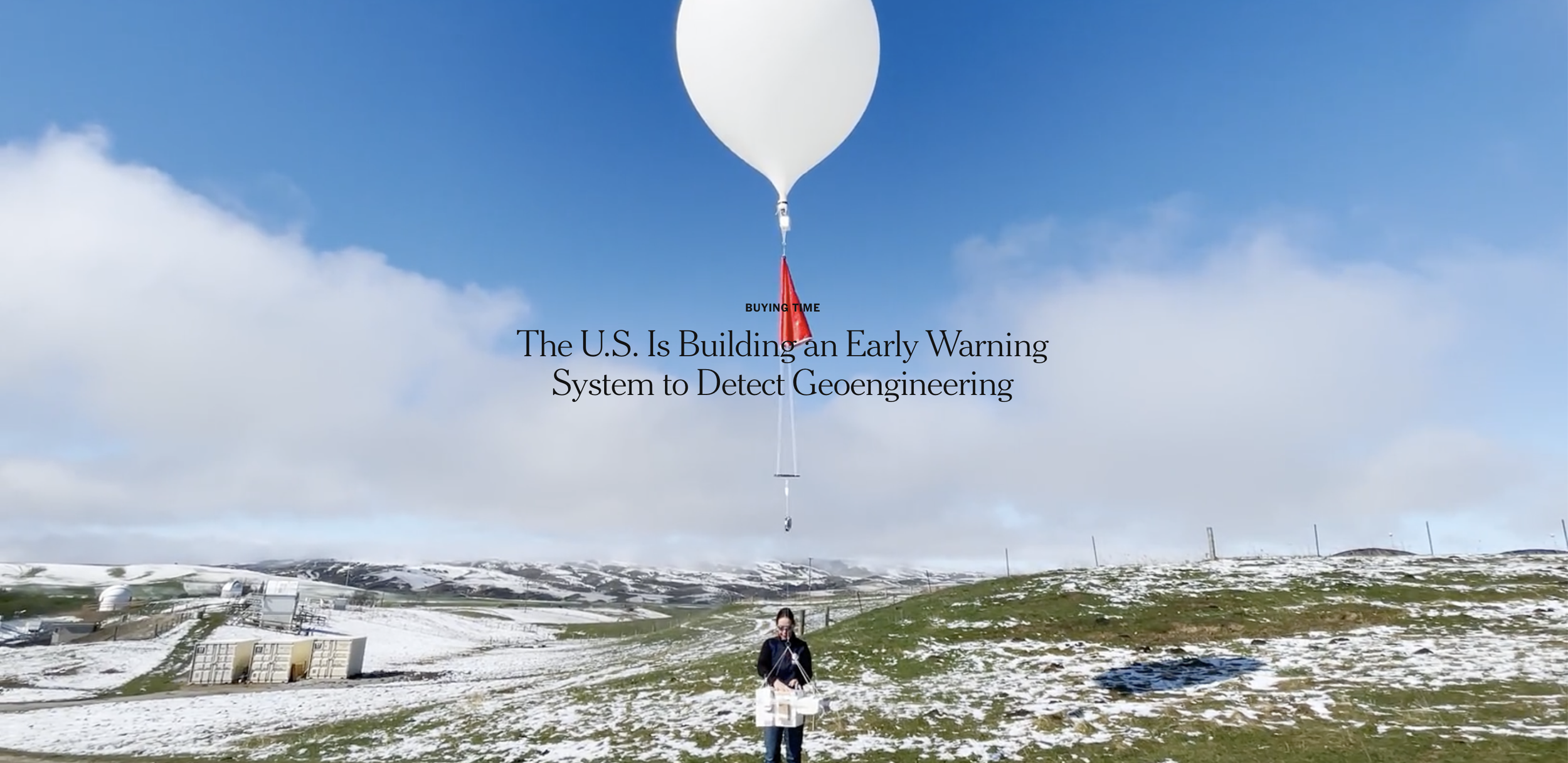
NYTimes: The U.S. Is Building an Early Warning System to Detect Geoengineering
In a guarded compound at the foot of the Rockies, government scientists are working on a new kind of global alarm system: One that can detect if another country, or maybe just an adventurous billionaire, tries to dim the sun.
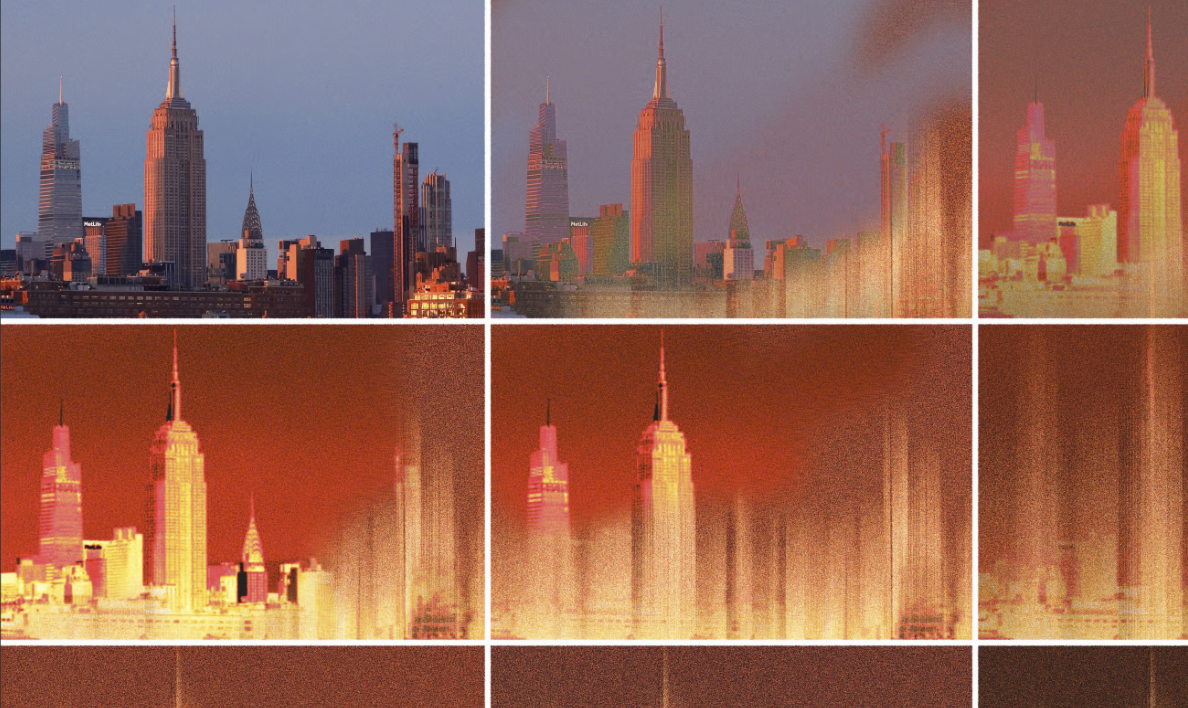
The Guardian: ‘We should have better answers by now’: climate scientists baffled by unexpected pace of heating
The leap in temperatures over the past 13 months has exceeded the global heating forecasts – is this just a blip or a systemic shift?
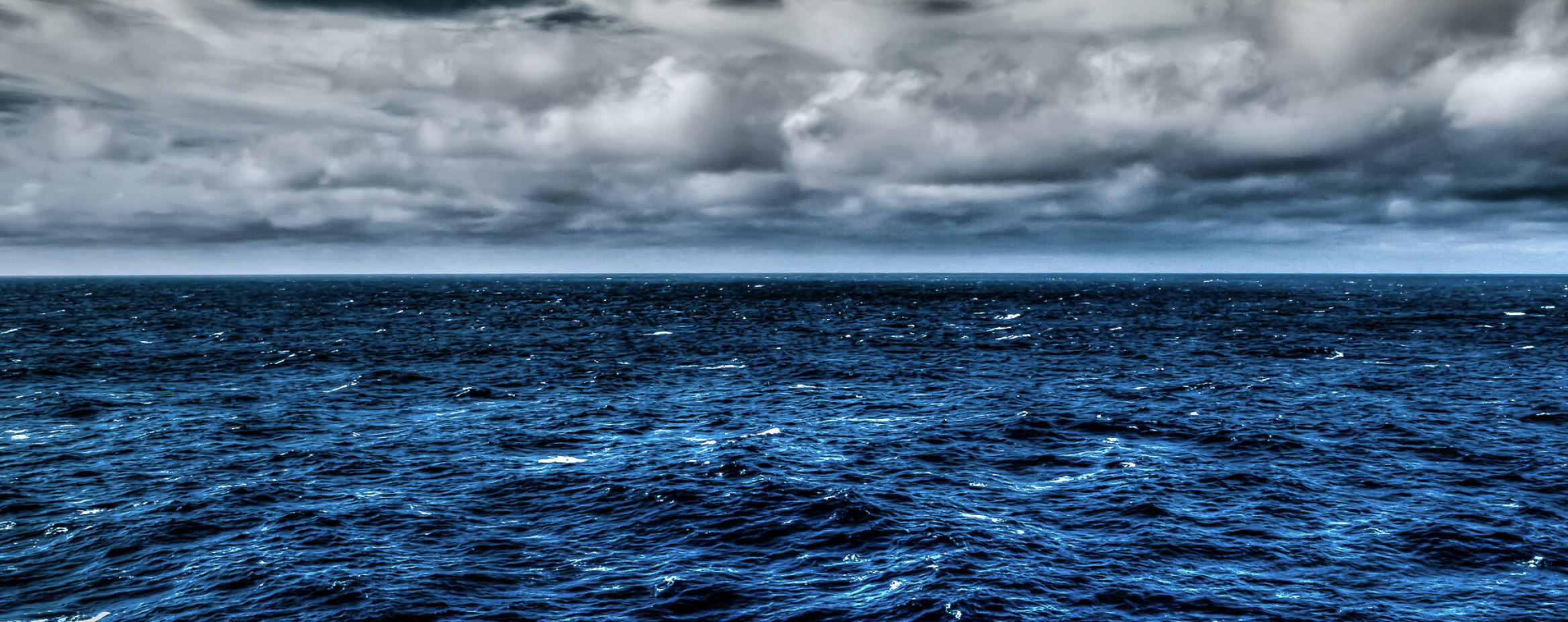
Mongabay: Cloud brightening over oceans may stave off climate change, but with risk
Marine cloud brightening (MCB), the spraying of sea salt aerosols or other fine particles into clouds to artificially brighten them and increase the sun’s reflectivity, is a proposed strategy to ward off the full effects of climate change
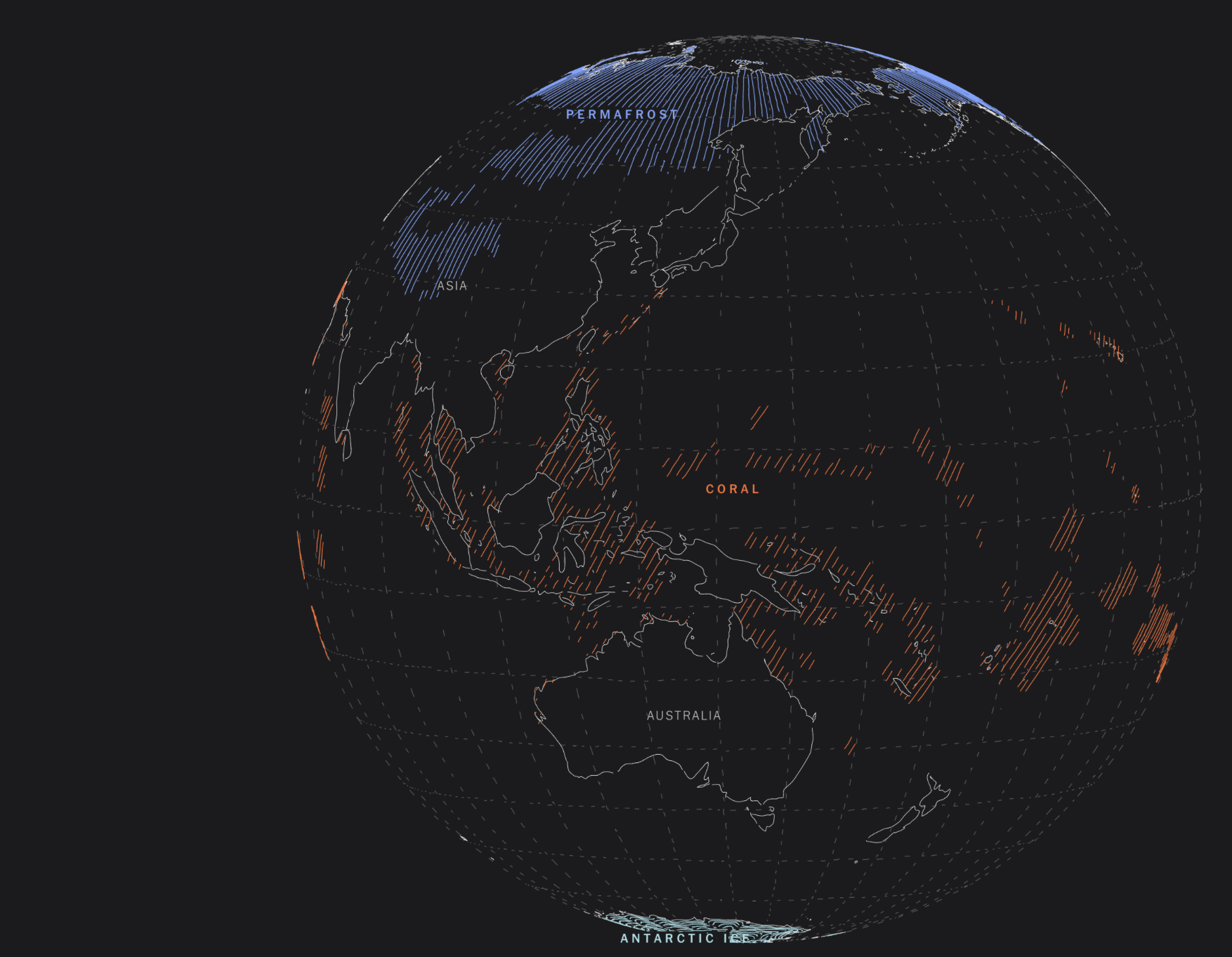
The NYTimes: How Close Are the Planet’s Climate Tipping Points?
Earth’s warming could trigger sweeping changes in the natural world that would be hard, if not impossible, to reverse.
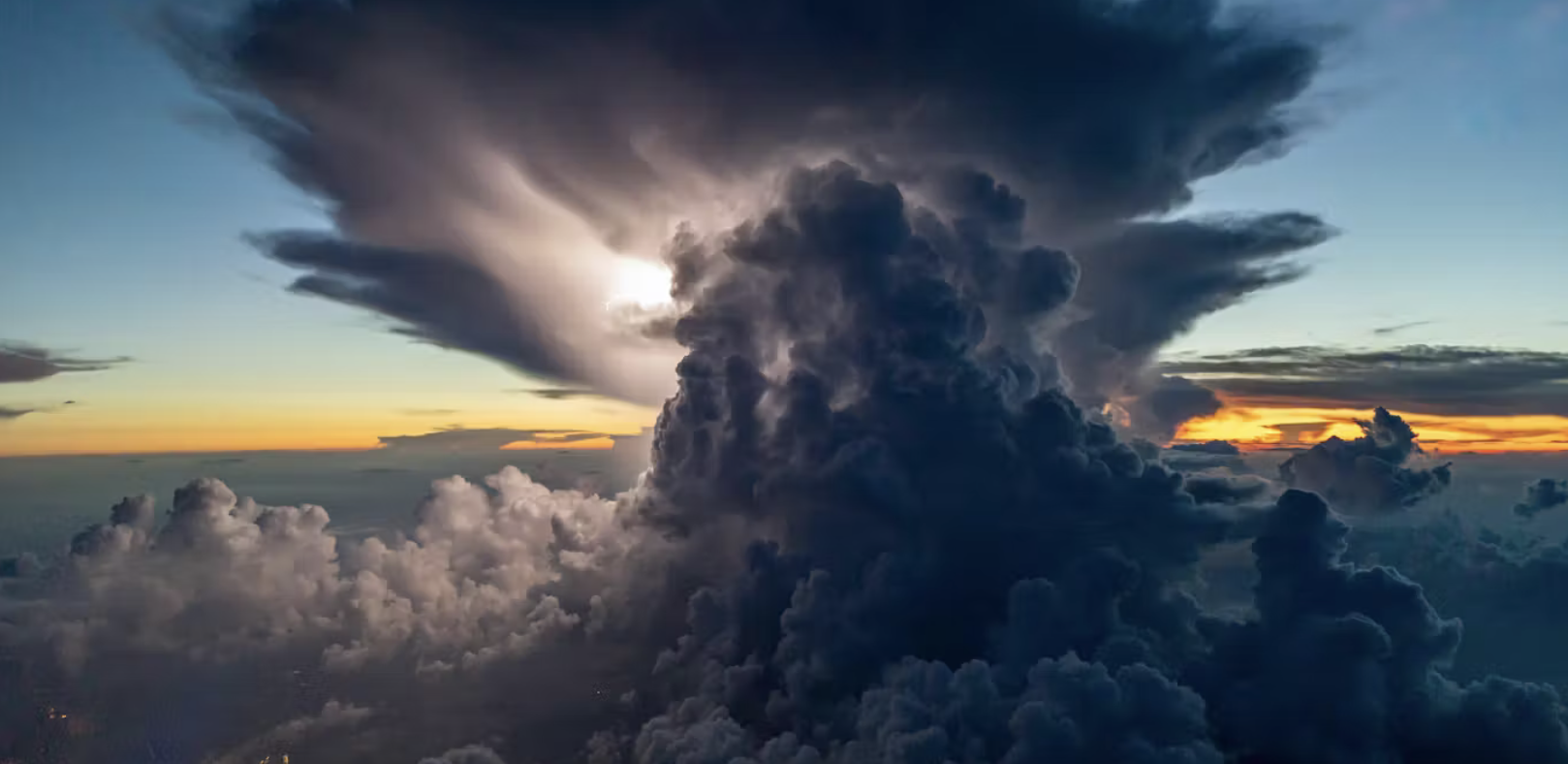
The Conversation: The climate is changing so fast that we haven’t seen how bad extreme weather could get
Extreme weather is by definition rare on our planet. Ferocious storms, searing heatwaves and biting cold snaps illustrate what the climate is capable of at its worst.
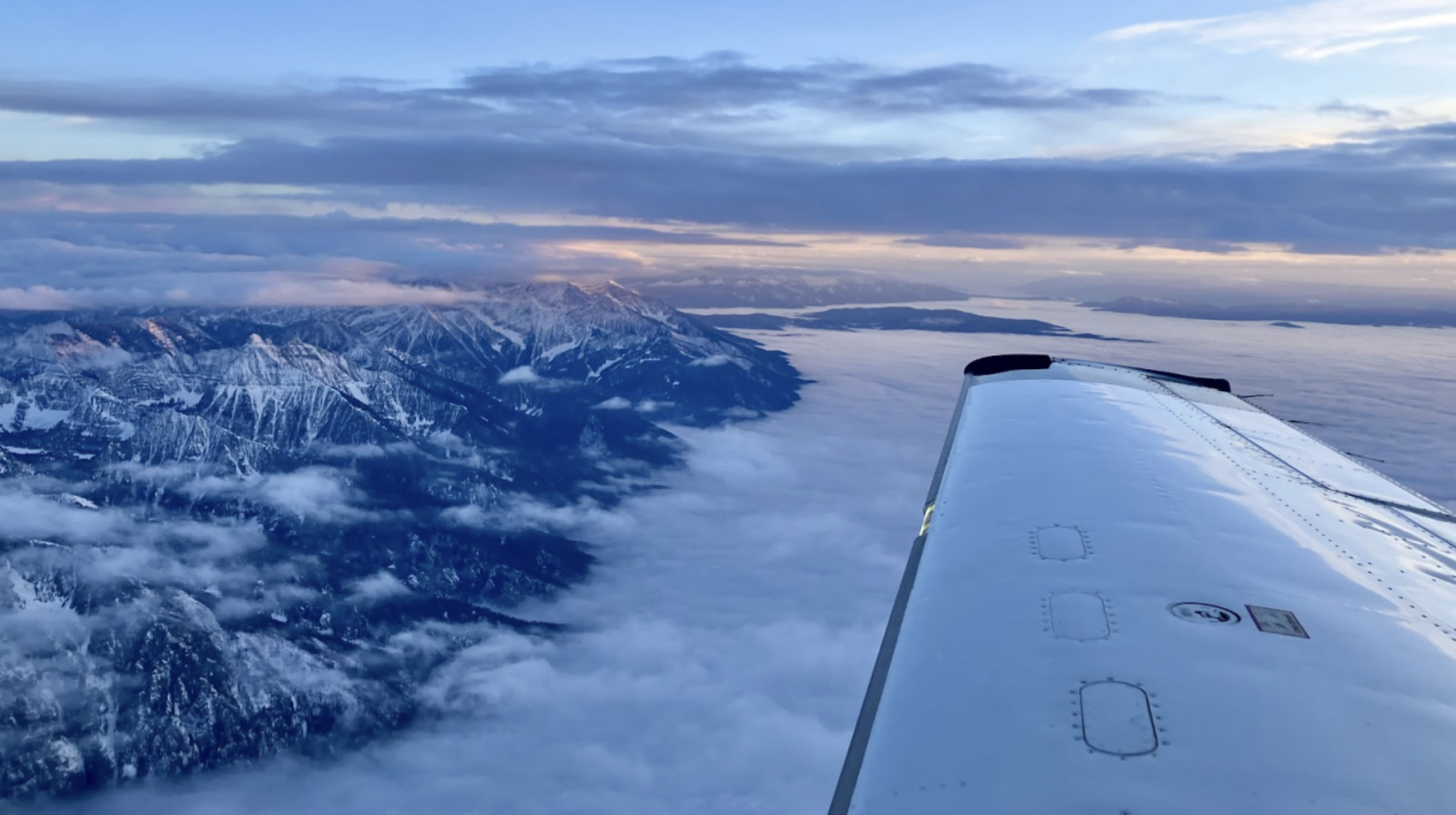
NOAA and United Airlines partner to measure greenhouse gases, pollutants with high-tech flight instruments
NOAA and United Airlines have announced an agreement to equip a Boeing 737 with a sophisticated instrument package that will measure greenhouse gases and other pollutants during domestic flights.

Grist: How cleaning up shipping cut pollution — and warmed the planet
When the maritime sector slashed sulfur emissions, it became an accidental experiment in geoengineering.
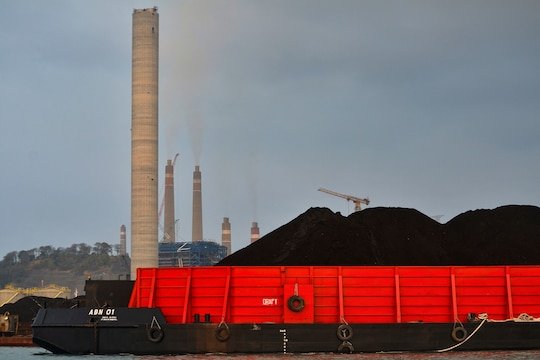
The Washington Post: We’ve been accidentally cooling the planet — and it’s about to stop
Humans’ fossil fuel burning has cooled the planet while warming it — presenting problems for the future.
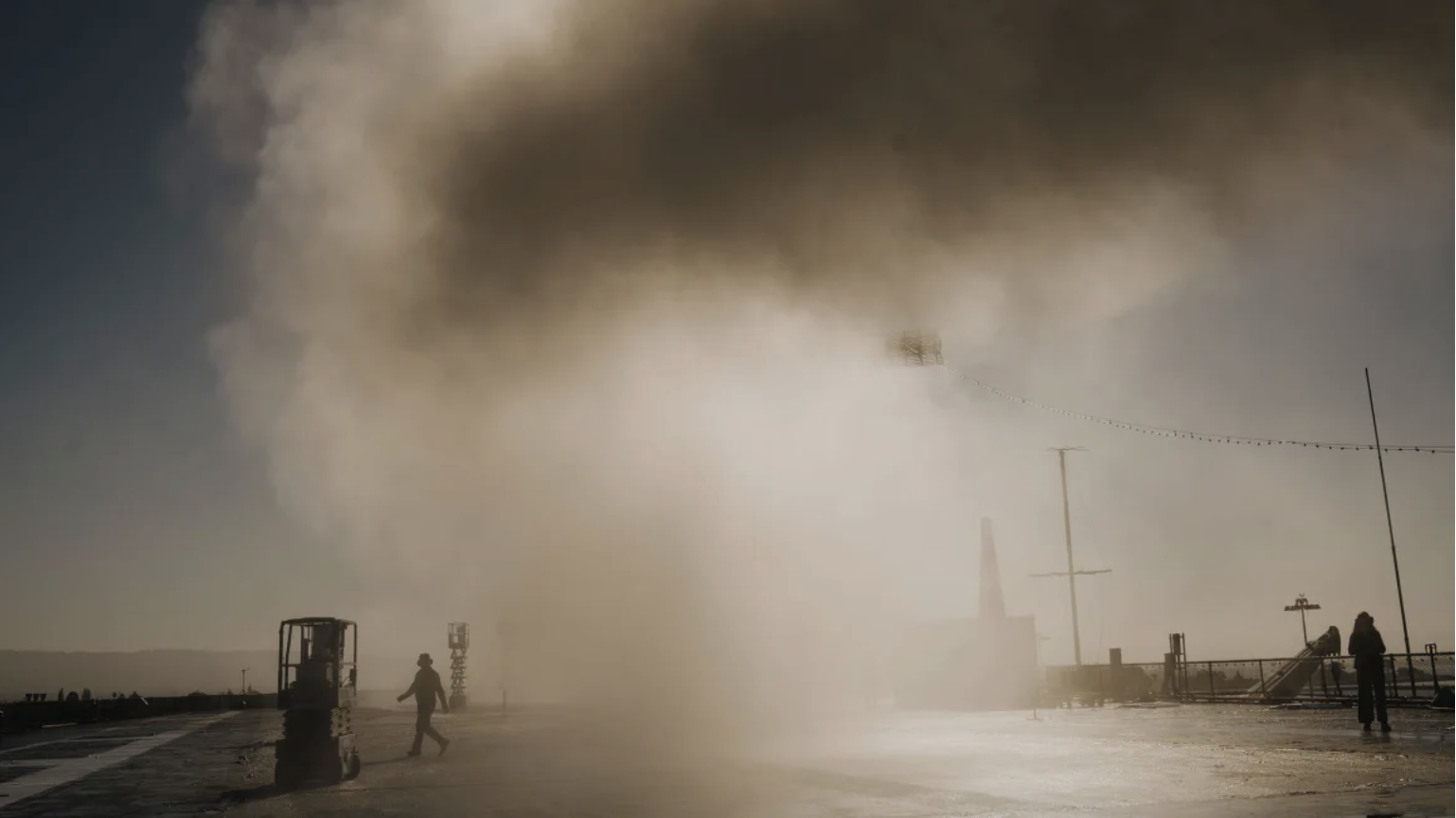
CNN Opinion: Amid deadly heat, why is critical climate research being halted?
A first-of-its-kind climate science research program was just shut down in Alameda, California by local leaders, against the advice of city staff and experts who confirmed the safety and value of the research.
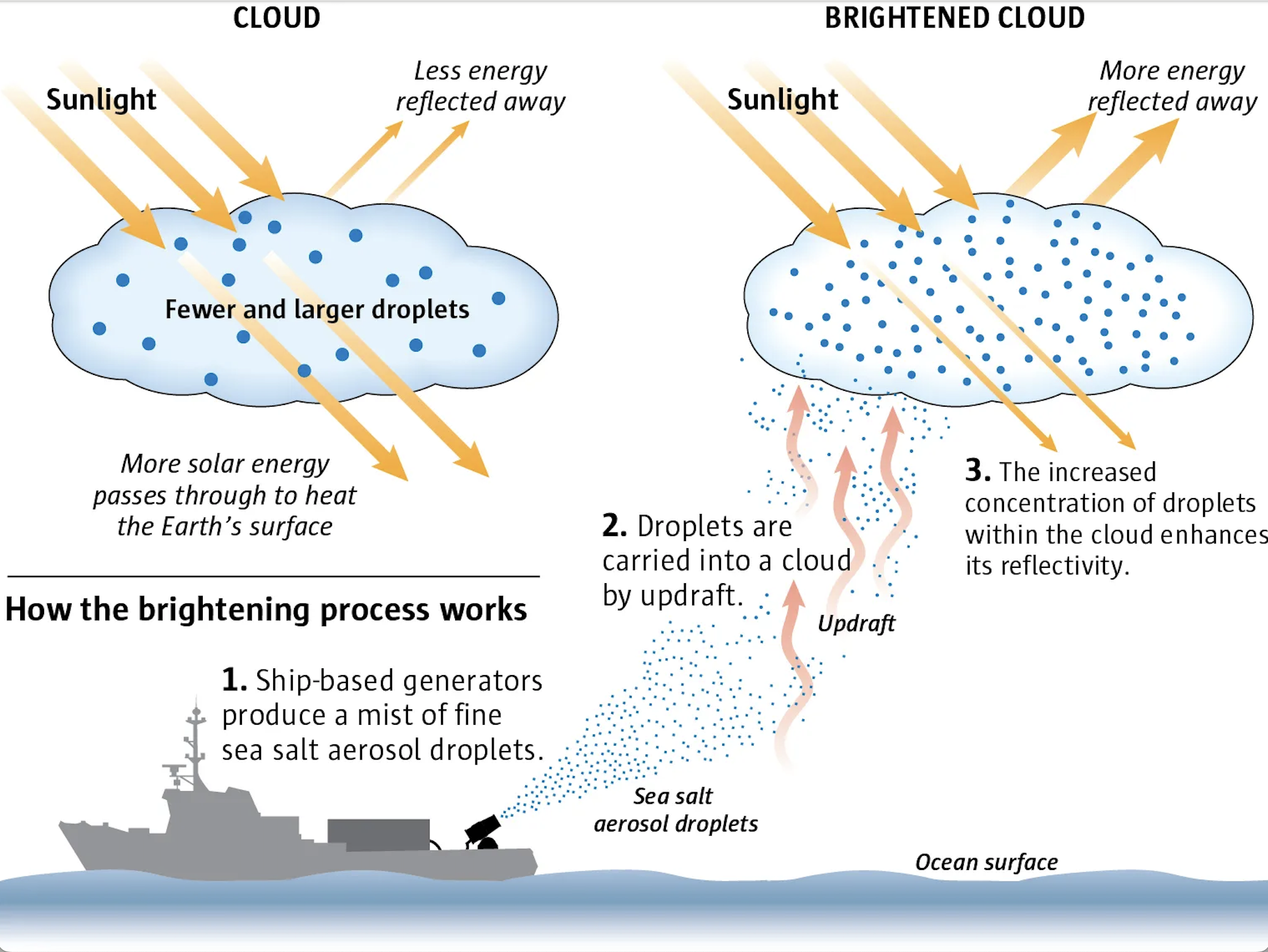
Seattle Times: UW studies a drastic way to cool a warming planet — cloud ‘brightening’
Aboard the deck of a World War II-era aircraft carrier, University of Washington scientists flicked the switch on a glorified snow-making machine, blasting a plume of saline spray off the coast of Alameda, Calif.
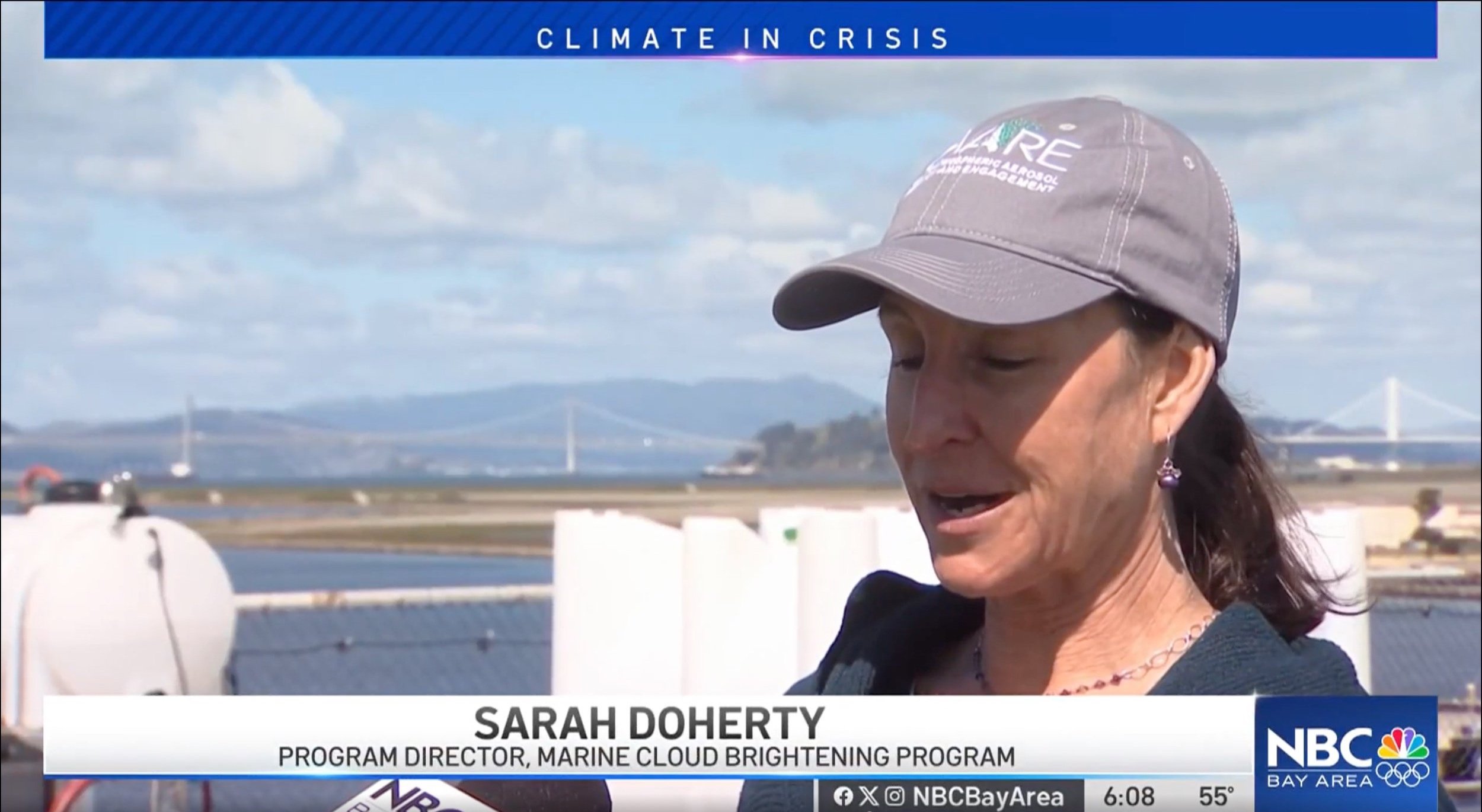
NBC: Cloud brightening: First-in-nation tech aims to cool our warming planet
Scientists are testing a controversial idea in the Bay Area for cooling our warming planet. Velena Jones has the story.
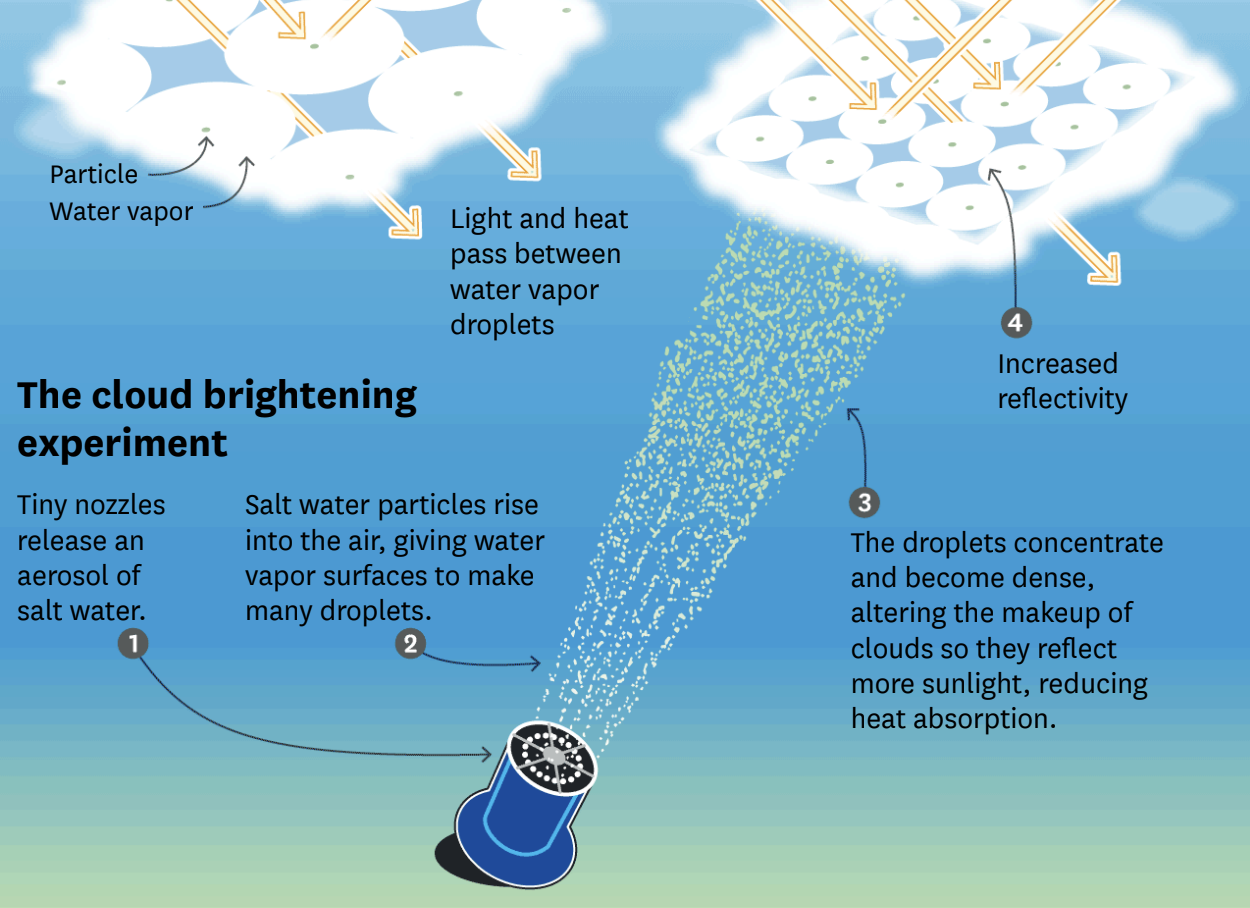
SF Chronicle: Bay Area hosts first-in-nation experiment to slow global warming - by helping clouds deflect sunlight
In Alameda, scientists are embarking on a novel attempt to cool the Earth — by spraying salt into clouds.

NYTimes: Warming Is Getting Worse. So They Just Tested a Way to Deflect the Sun.
A little before 9 a.m. on Tuesday, an engineer named Matthew Gallelli crouched on the deck of a decommissioned aircraft carrier in San. Francisco Bay, pulled on a pair of ear protectors, and flipped a switch.
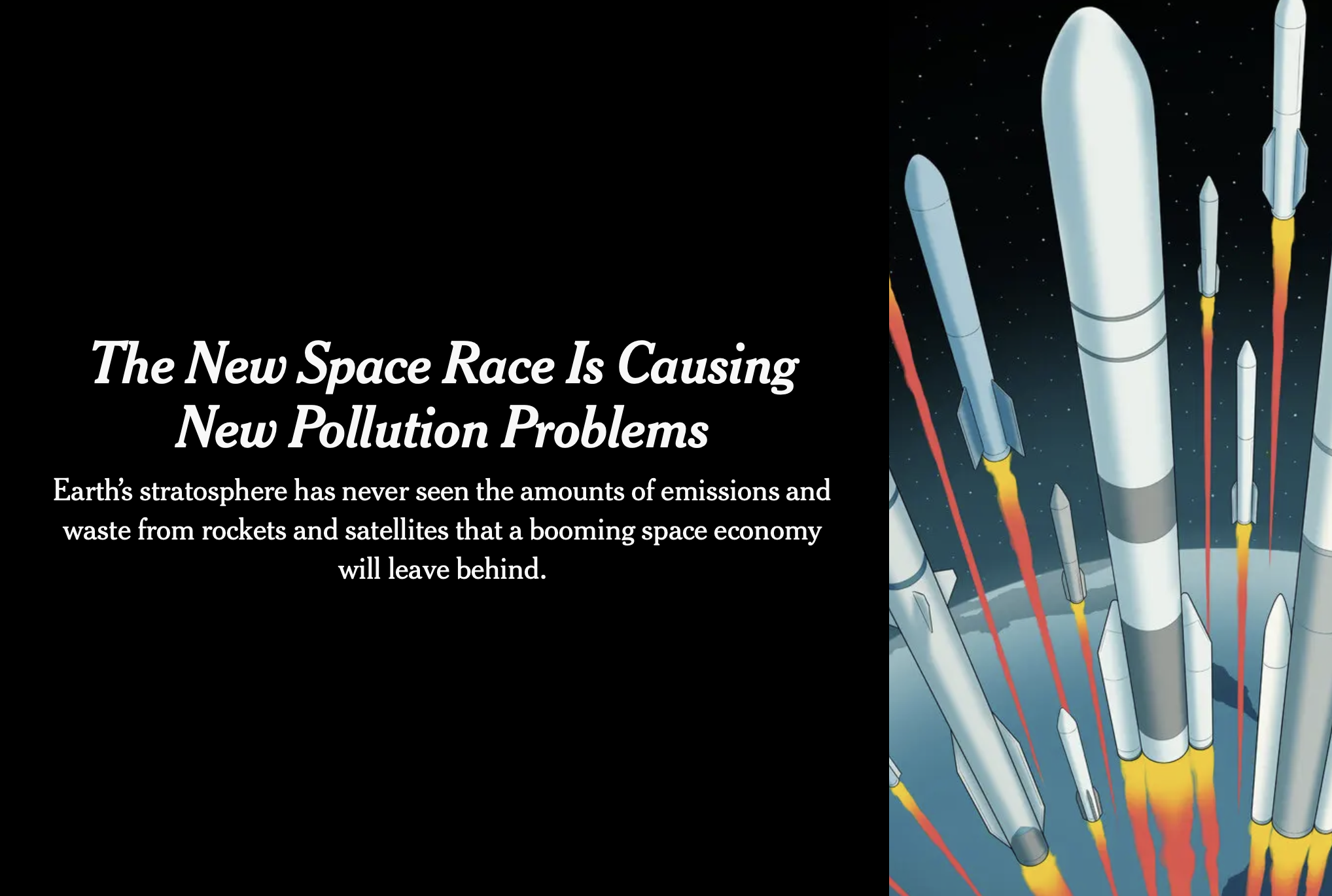
NYTimes: The New Space Race Is Causing New Pollution Problems
Earth’s stratosphere has never seen the amounts of emissions and waste from rockets and satellites that a booming space economy will leave behind.

Experts Underestimate How Fast Earth is Warming, Top Climate Scientist Says in New Study
Legendary climate scientist James Hansen, in a new study published Thursday, predicts that the Earth's temperature rise will accelerate in the upcoming decades and will reach 2 degrees Celsius above preindustrial temperatures by 2050.
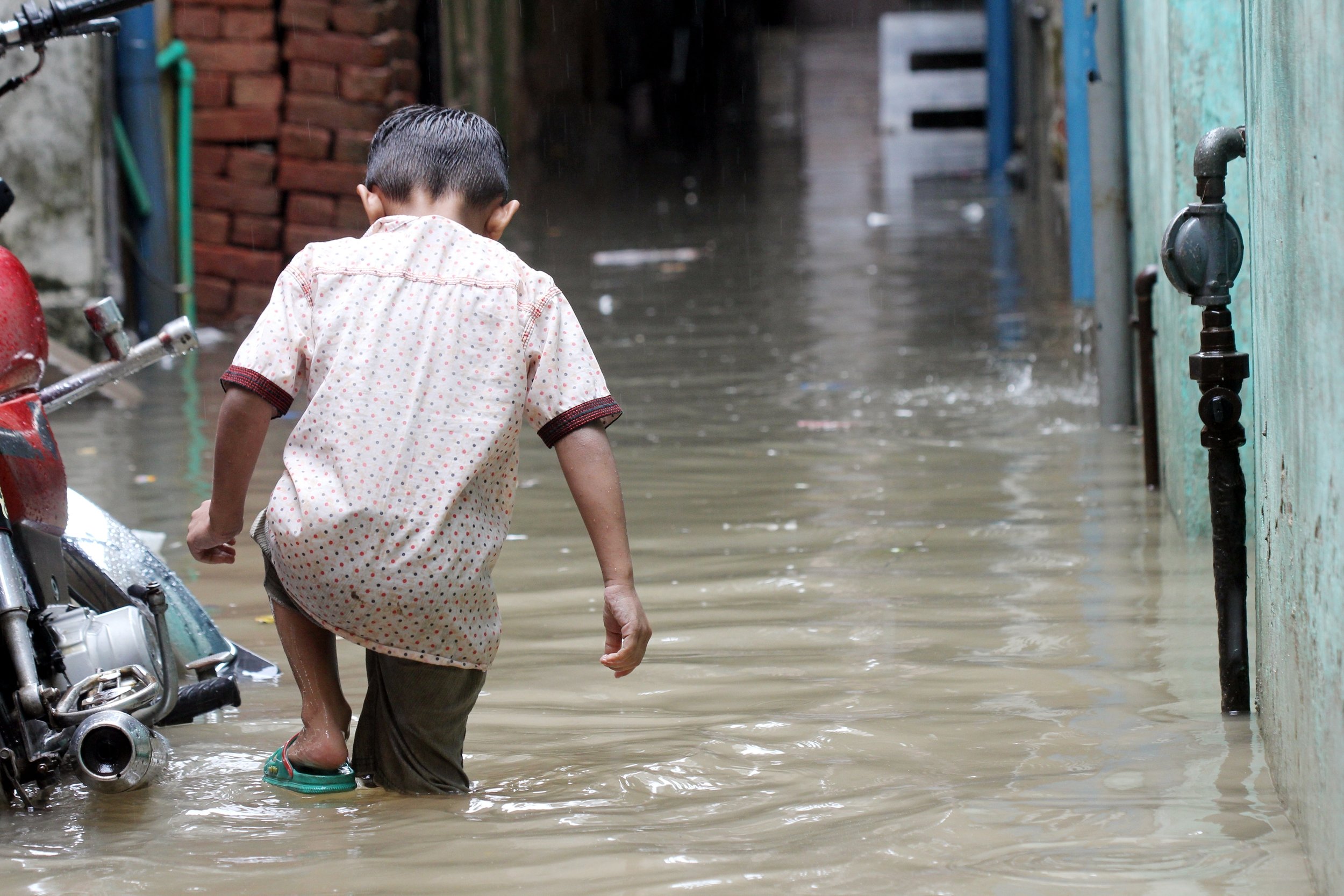
Illuminem: Climate intervention requires international research and the Global South has contributions to make
Challenging times are ahead for all of us who call this small blue planet home. The planet will continue warming due to emissions already in the atmosphere at least for the next 40 years even if we stop polluting right now, and yet emissions continue to rise.
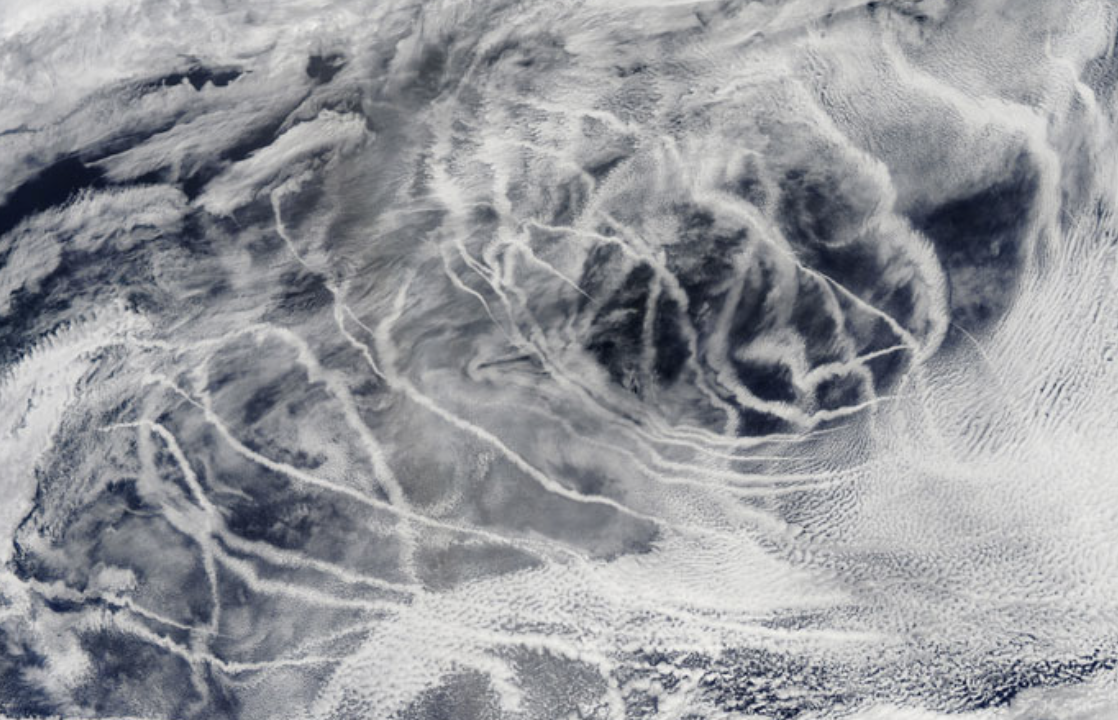
Daily Beast: We’ve Been Accidentally Geoengineering the Earth for Decades
For the past few decades, the entire planet has been conducting an experiment that could save us from climate change disaster. It’s the kind of experiment that would never be allowed to happen under normal circumstances, due to how dangerous it is and how catastrophic the results could be.
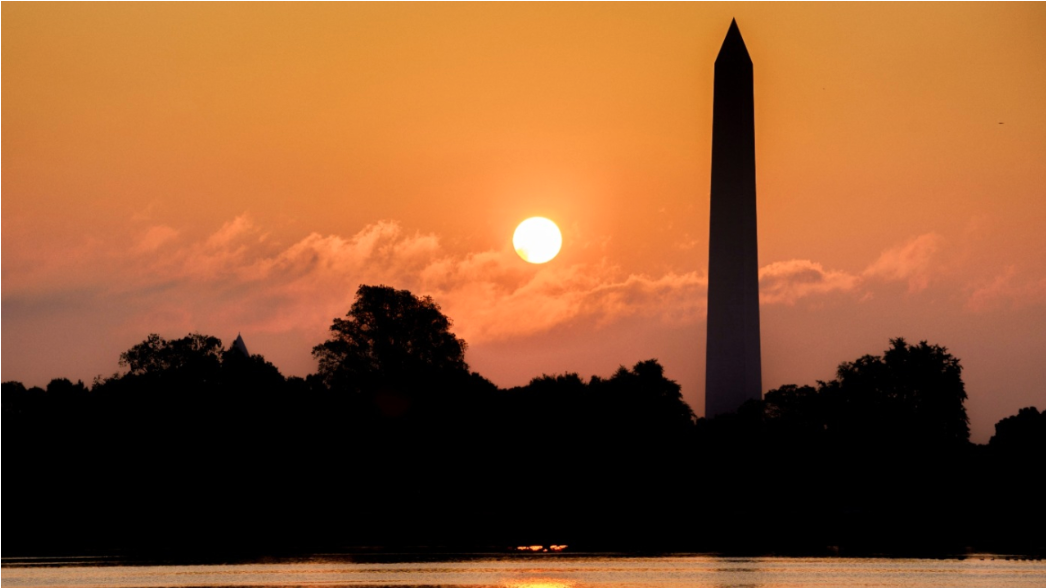
The Hill: In the climate red zone, the US and EU are considering urgent interventions
Brown skies over Europe and North America from Canadian wildfires and record “hot” North Atlantic seas are signs that we have reached a new level of climate risk — one that threatens the well-being of nearly everyone on Earth. Threats described in stark terms by the United Nations and by scientific and foreign affairs experts were underscored by global average surface temperatures briefly passing 1.5 degrees Celsius, a threshold for intensified danger, in early June.Brown skies over Europe and North America from Canadian wildfires and record “hot” North Atlantic seas are signs that we have reached a new level of climate risk — one that threatens the well-being of nearly everyone on Earth. Threats described in stark terms by the United Nations and by scientific and foreign affairs experts were underscored by global average surface temperatures briefly passing 1.5 degrees Celsius, a threshold for intensified danger, in early June.

Illuminem: Cooling credits: sold as a “cool” solution to climate change, buyers (and everyone) should beware
Carbon credits have come under fire recently, as regulators, analysts and media take a closer look to see if and how well these credits represent actual benefits for climate.

